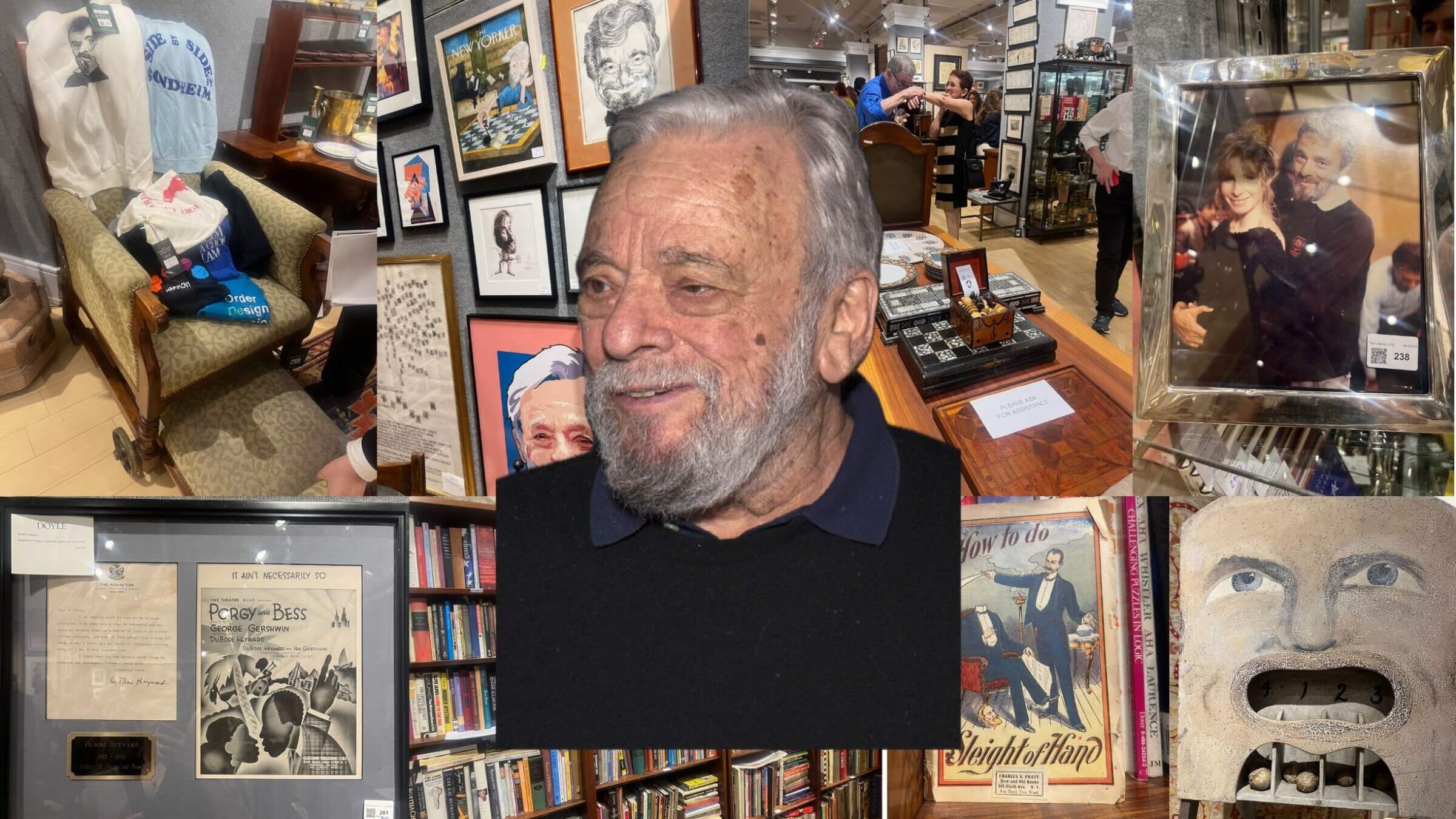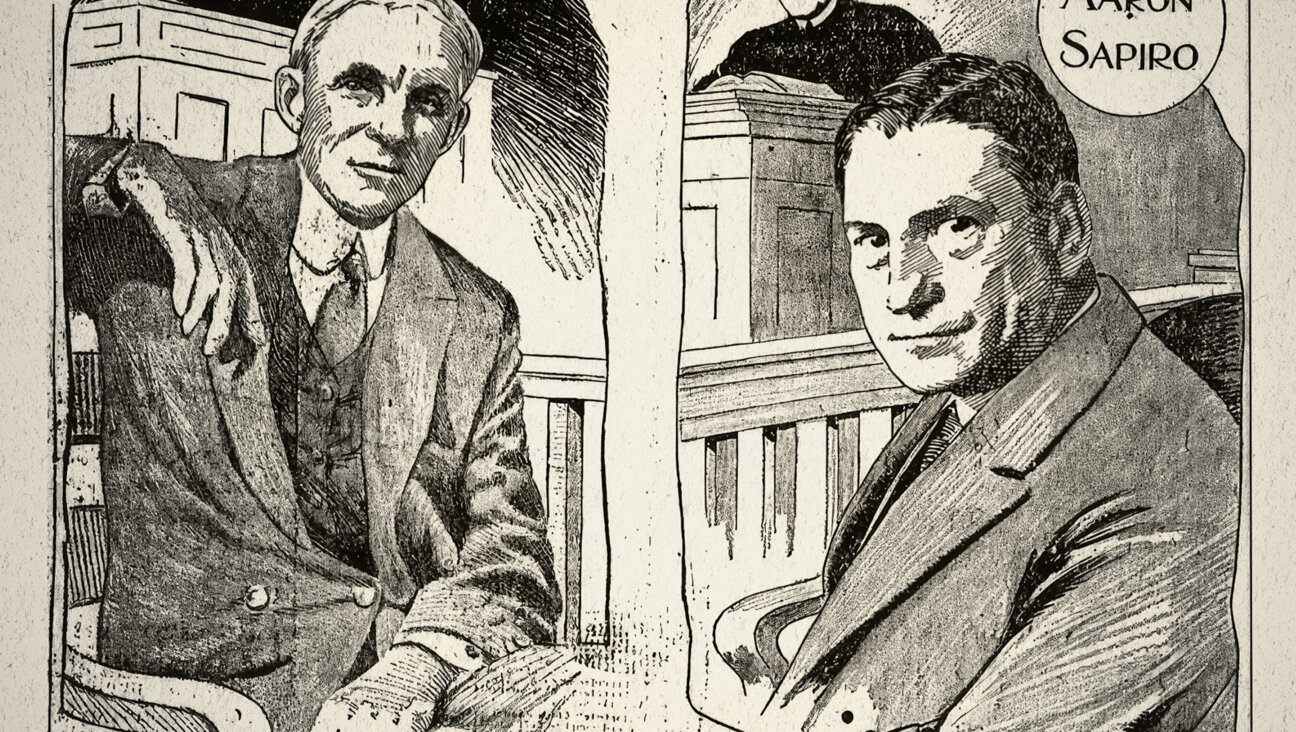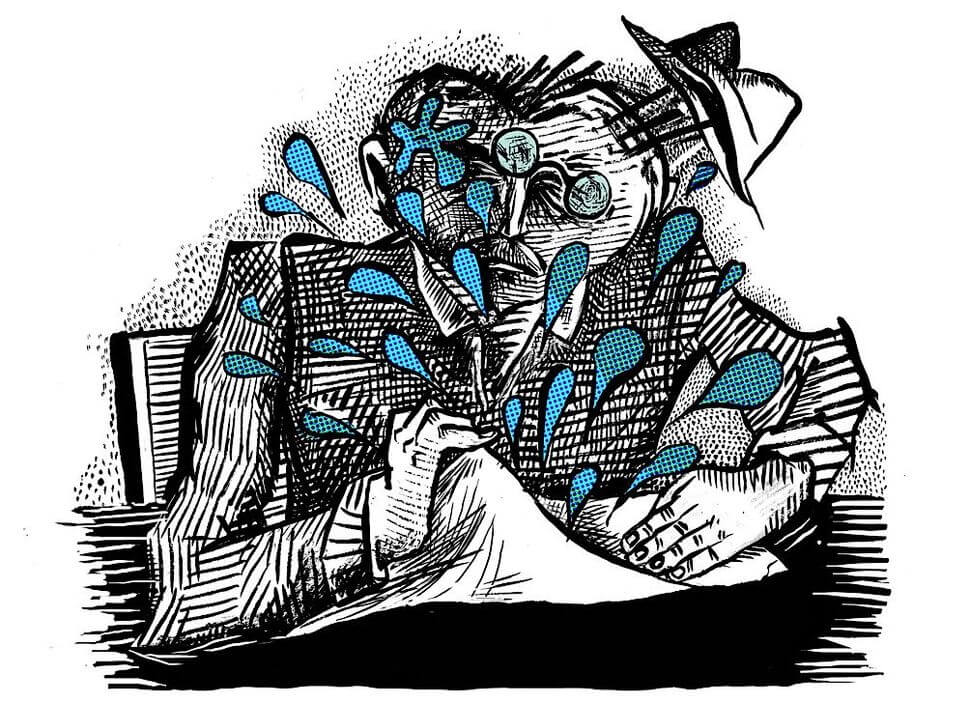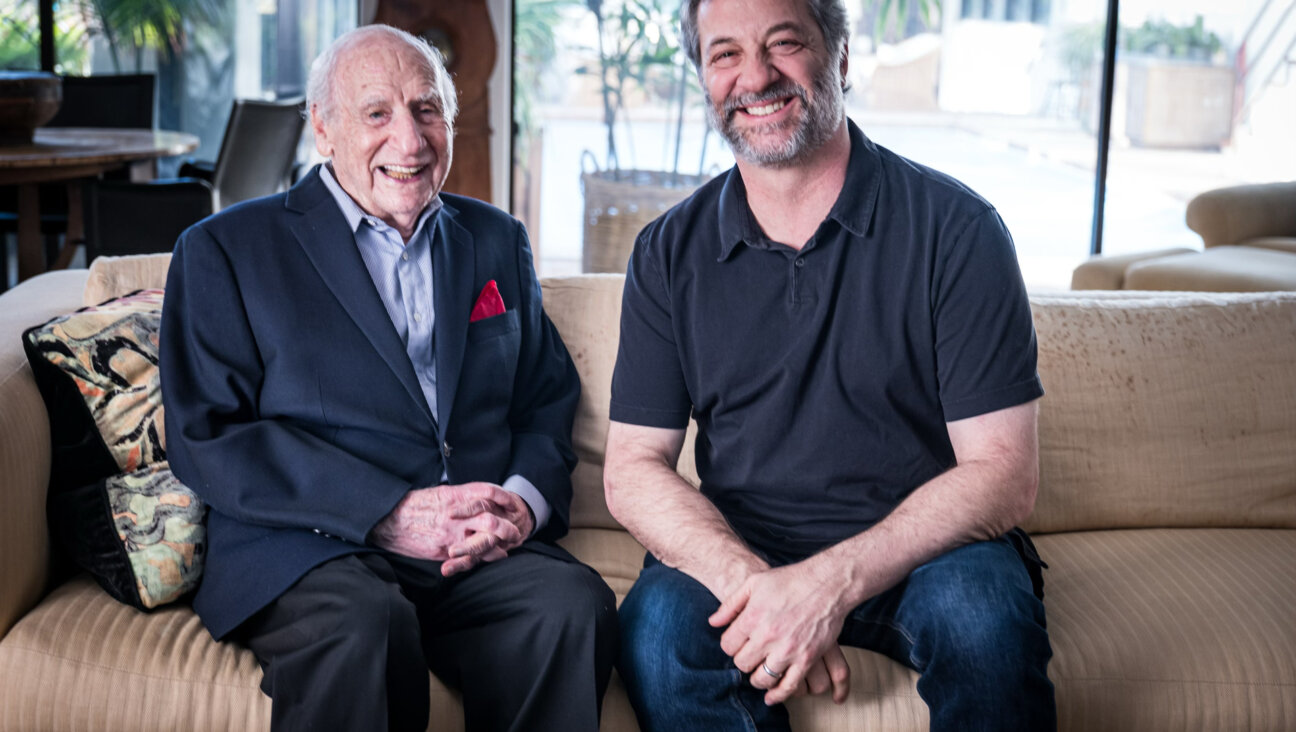‘I haven’t really accepted he’s dead’ — scenes from the Stephen Sondheim estate sale
Bidding on Sweeney, la-la-la. Drinking bellinis, la-la-la. Hi-ho the glamorous life!

Scenes from the Stephen Sondheim estate sale. Graphic by Getty Images/Talya Zax
Scene: Interior, an Upper East Side auction house, 5:30 p.m. on a Friday. In a back corner, a singer accompanied by a keyboard bravely tried (and failed) to overwhelm the sounds of a party. A man in a white and black patterned button-down opened the doors of a wooden puzzle box, telling his companion that the auction’s subject had a “gaming fetish.” Behind them, a man in black jeans walked directly into a wall of framed posters, leaving Sweeney Todd and Stage Door swinging.
Gaming fetish; Sweeney Todd; a passion fruit-and-prosecco cocktail called the “Sweeney Bellini”; pretty little picture of one of those New York City affairs where it feels anything might happen. A pity that Stephen Sondheim, one of the best-ever observers of this sort of gathering — its jokes and its pretensions, the rich interior lives of the quiet folks in the corners and the peacocking ones in the center of the room — wasn’t there.
But at least his belongings were.
Here are some of the things one can learn from Sondheim’s estate, which will be sold off to the adoring at Doyle Auctioneers and Appraisers this Tuesday. He had a passion for glass tchotchkes, especially slightly ugly ones: My kingdom for an apple-green, thoroughly be-warted toad. He owned an awful lot of books about himself, and only slightly fewer about Charlie Brown. He could not resist a tastefully inlaid wooden chess board, nor a set of dishes patterned with playing cards, nor a particularly complex or even befuddling item of furniture.
Those latter items were a primary draw for PC Hurewitz, a native-born New Yorker whose favorite Sondheim musical is A Little Night Music, and who demanded a promise that this correspondent would not try to outbid her before revealing her auction intentions. “I do love all things with drawers,” Hurewitz said, “and he has probably five or six items with drawers or shelves that would just fit perfectly with all of my Broadway and travel books.” (The Sweeney Bellini, Hurewitz said, was “excellent.”)
A Broadway producer, who declined an interview, snapped a photo of a navy blue sweater with a large “S” patch attached to the front. He moved toward a cabinet, which a woman popped open to reveal an untold number of drawers: “Whoa,” he said.
Not drinking a Sweeney Bellini, but perhaps the party’s biggest Sweeney Todd fan, was Hayward Ratliffe, 64, who had come in from Philadelphia for the occasion and was wearing a tastefully undone bow tie. Ratliffe has seen at least 20 productions of the macabre musical — including the first with Angela Lansbury, and the recent Broadway revival four times — and left his husband, who had said “he’s never going to see Sweeney Todd again,” at home with the dog.
Would he come back for the auction? Unsure, but if so, his favorite thing he’d seen was a signed letter, framed against a gray matting, to Sondheim from DuBose Heyward, one of the lyricists of the opera Porgy and Bess. Was the party worth the trip? “There’s a lot of good energy,” he said.
Yet the acquisitive nature of the event didn’t sit well with everyone. “There’s all these people touching and fingering all of his things, which I’m not really, like, super thrilled about,” said Michael Burbach, 34, an actor, who wore an Angels in America T-shirt. (“Angels in America is my favorite play, and Sondheim is my favorite composer.”) “I haven’t really accepted that he’s dead.”
Burbach, who collects “art books and art house films and art,” said he might place a bid on “a few books.” If he won something, where would he display it? “It will be a great party piece,” he said, with a pointed enigmatic look.
Outside, it began to pour. Supplies of the Sweeney Bellini ran out; only fairly bad white wine was left. Dovanna Pagowski, 67, extraordinarily tall and adorned by a highly funky gold necklace, exclaimed over a bookshelf. “The Devil’s Picture Book and The Money Game,” she said, pointing at two slightly worn tomes. “Look at that!”
Pagowski, who says she invented her own first name — inspired by the midcentury supermodel Dovima — came more for the antiquing thrill than the Sondheim factor. Her best auction story: “I live on the Upper West Side, and the president of the Block Association — this is 30, 40 years ago — I believe he worked at Princeton, and he had spirited out some illuminated texts on the occult,” she said. “He stored them somewhere in Westchester at the top of the building. And I kid you not, the building got struck by lightning.”
So the block association president took the natural next step, and tried to get rid of the texts at a yard sale. “People saw it and said, ‘Something’s really not right here,'” Pagowski said. “It’s like going to a yard sale and seeing Egyptian linens.” The president was arrested; the texts returned to Princeton; and, presumably, no further buildings burned down.
Two staffers mopped up a spilled beverage under a lamp featuring a carved Asian-inspired figure. An older woman, walking with a cane, took a modest stumble and quietly confessed: “I’ve had a bit to drink.” A young woman in a low-backed black dress, the word “yes” tattooed in large sloping letters between her shoulder blades, walked out to join the crowd under the auction house’s awning, peering out from their dry haven to catch the eyes of cab drivers, or decide whether it was worth risking the rain.
Some went back inside, to plead for just one more glass of wine while they waited for the storm to pass. “Listen to the rain on the roof go / Plunk-planka-plink / Plunk-planka-plink-planka / Let’s have a drink,” they might have begged. “And shelter from the showers.”

















